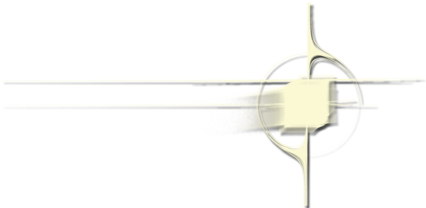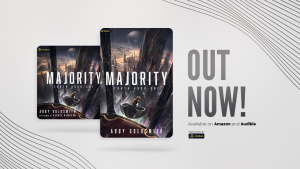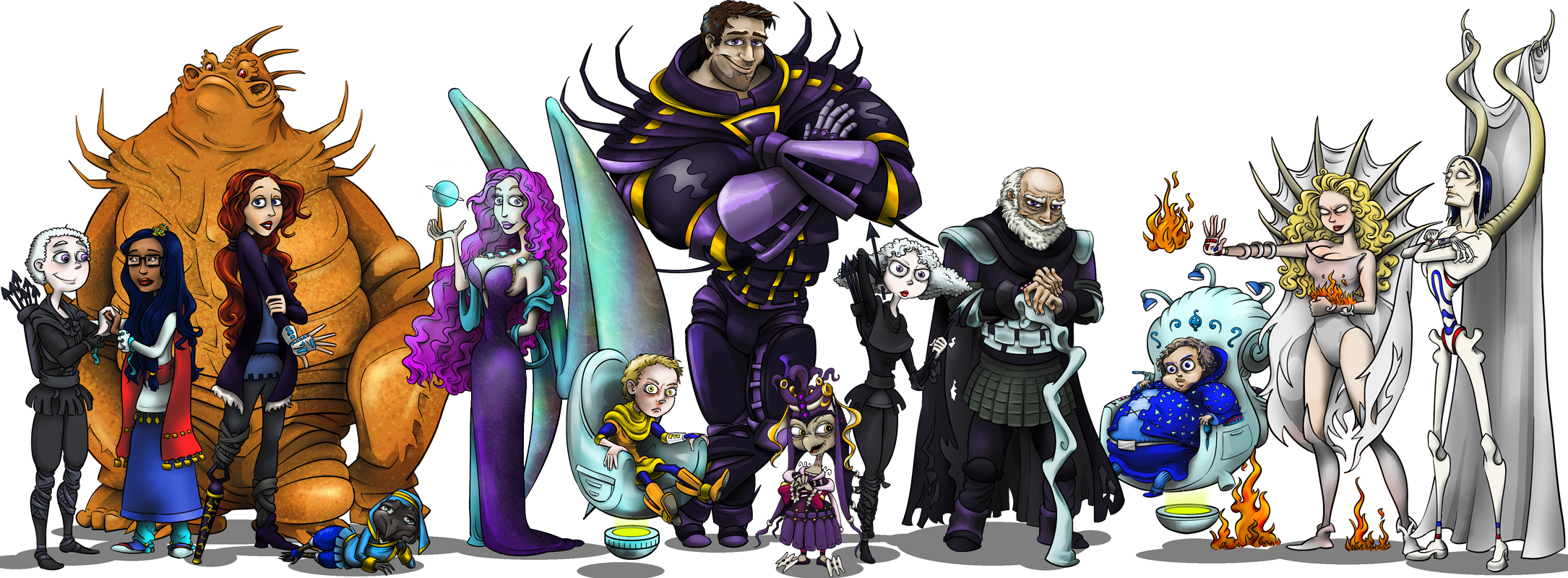“Thank you for coming,” Thomas told the well-dressed audience.
Their wants and desires saturated the air, more pungent than perfume. Thomas tried not to wrinkle his nose with distaste. Instead, he made himself sound pleasant.
“And again,” he said, “if you make a donation to Rasa Biotech? You’ll receive a full-length recording of me explaining my breakthrough with ubiquitin inhibiting enzymes.”
He suppressed a sigh of relief as one of his adult colleagues leaned into her microphone to offer her own closing remarks. The press conference was over. Soon, Thomas would be able to escape the cloying moods all around him.
His fellow panelists were distinguished molecular biologists and neuroscientists. All had gray hair. For them, college was decades ago. Middle school was even further in the rearview mirror. Thomas was painfully aware of what he looked like to the biochem majors and journalists in the audience.
A gimmick.
A poster boy.
He forced himself to smile as the audience clapped, aiming extra applause his way. He always got extra attention for being underaged and visibly disabled. He wasn’t a typical neuroscientist.
Reporters surged towards Thomas, and he braced himself for a maelstrom of unwanted thoughts. His colleagues from Rasa Biotech gave him sympathetic looks, but they were free to leave, and they wisely trotted away.
“Thomas!” A microphone nearly smacked him in the face. “Thomas Hill! Can you confirm that you’re scheduled to speak at Harvard next month?”
—Like a trained monkey.
Another microphone. “Do you have any school-aged friends, Thomas?”
Even if he is a smart kid, there’s no way a thirteen-year-old—
Another microphone. “What do kids your age say about you working as a consultant for a leading biotech company?”
Answer my question first, you smug brat.
“How does your foster mother handle your busy schedule, Thomas?”
Doubt he’ll live to adulthood. Even if he’s in on clinical trials—
Thomas attempted to power his wheelchair through the crowd, but reporters shoved past each other like vultures around fresh carrion. The barrage of thoughts blended into a screaming whirlwind of mood-laced nonsense.
The attention had been tolerable earlier, when the vast majority of people sat beyond his range of telepathy. Thomas didn’t mind one or two people within his range. Even four or five was okay. He was used to living in crowded group homes.
But thirty plus?
The nonstop babble gave him a pounding headache. He could not lift his underdeveloped arms high enough to shove the microphones away.
All he dared say was, “Thank you for coming.” Otherwise, he might accidentally answer someone’s unspoken thought.
His caretaker, Vy, pushed through the crowd. “I’m so sorry,” Vy said with an apologetic smile as she squeezed past a cameraman. “Sorry.” She pulled on her winter coat, whacking a reporter in the process. “Whoops! Did I hit you? I’m really sorry.”
At six feet tall, Vy could take up a lot of space. People tended to forgive her. She was a natural redhead with a sweet, kind-hearted face.
Vy got behind Thomas’s wheelchair and plowed towards the off-stage ramp. The reporters could overlook his determination to leave, but not hers. All they could do was try to keep up.
Cameras flashed. The babble echoed against the high ceiling. The remaining audience crowded the aisles, eager for a close-up glimpse of the phenomenal child whom newspapers touted as the “Next Einstein” or a “Young Da Vinci.” Headlines screamed that Thomas had an immeasurable IQ score.
The testers had no idea that he cheated.
Thomas feared that if his secret ever leaked into the public, today’s mob would be a trite little blip. He would cease to be a biotechnology consultant. He would no longer get opportunities to guide scientific research in an advantageous direction. Instead, he would become an unwilling research subject, locked up in a government facility and poked and prodded until he died.
He dared not let the world learn what he could do.
—poor kid—
—should get going if I’m going to pick up dinner for—
All he can do is study, since he’s so—
—would think that his birth mother would come out of the woodwork, just to claim him—
The cacophony of thoughts went on and on. Thomas realized tiredly that most of them were not actually talking.
“Can I have an aspirin?” he asked.
“You just had one before the panel,” Vy pointed out. Even so, she kindly opened the bottle of baby aspirin and shook out a pill. She put it into his mouth, then held a bottle of water for him to drink from.
… ( ) …
That was a strange mind.
Thomas halted his wheelchair, causing Vy to bump into him.
That woman wearing sunglasses, just beyond his four yard range of telepathy, seemed to contain countless millions of minds instead of just one.
But she was no longer in his range. She had stepped back.
Thomas figured he must be more exhausted than he’d realized. Nobody had a mind like that. He contained a few thousand extra lifetimes worth of knowledge, but they were not all whispering inside him at once, like a sinister audience. He only had one consciousness. It was his own.
Anyway, he had never met anyone with a mind like his. Not even close.
Rather than attempt to explain why he had stopped, Thomas pushed the button on his armrest and moved forward again. That woman looked like a normal graduate student, or perhaps a professor. He had likely hallucinated a microsecond of weirdness.
Why was she wearing sunglasses indoors?
He glanced back. Sure enough, her eyes remained completely hidden. Her skin had a plastic artificiality to it. Perhaps she was a burn victim?
“What’s wrong?” Vy asked. “Did you forget something back there?”
“No.” Thomas faced forward, embarrassed by his own lapse in judgment, or his perceptual error. People misjudged him all the time. He didn’t want to do it to some innocent bystander. “Let’s just get home.”
“Can’t wait.”
Winter turned travel into a process. Before they exited the college building, Vy had to wrap Thomas in a knit scarf and a thermal blanket. Once he was bundled up, she opened the door for him, and he powered his wheelchair onto the icy parking lot.
Gray-white asphalt matched the overcast sky. This time of year in New Hampshire, everything seemed to be different shades of gray.
Stragglers streamed past. “Great talk,” people told Thomas. Or they gave him a thumbs-up sign.
It was all fake, exaggerated praise. He heard their unspoken doubts.
Whoever coached him did an amazing job.
Well rehearsed lines.
As long as they talked positively about Rasa Biotech, their unspoken opinions about Thomas shouldn’t matter. Thomas kept reminding himself of that.
Vy loaded his wheelchair into the minivan. While she operated the lift, he overheard her personal thoughts. Vy was holding an inner debate on whether or not to stop at Afton High School, in order to pick up Cherise and their other foster siblings. Vy detested driving in heavy traffic. But her mom—Thomas’s foster mother—would appreciate the kindness, since it would help some of the kids get a much-needed early start on their homework.
“Can we pick up Cherise on our way home?” Thomas asked.
Vy gave him one of her troubled looks, and Thomas sensed her mood fuzz with frustration. How does he always manage to make on-target comments about what’s on my mind? she wondered. It can’t be a coincidence. He has to be a mind reader.
Thomas had lived in the Hollander Home with Vy for more nearly three years. They knew each other well.
He gave her a beneficent smile.
“Sure.” Vy strapped his wheelchair into its usual place, so it wouldn’t roll if the van hit a pothole. “That’s a nice thought.”
She secured Thomas into place with more straps. Sitting upright was hard work for his atrophied muscles, so he needed the support.
He listened to Vy’s thoughts without trying to listen. He had no choice. She was nearby, and his telepathy range was roughly thirteen feet in a radius from his head. That range fluctuated only a tiny bit. It narrowed when he was hungry or in pain, like now. It widened when he was feeling good.
…Scholarship.
Vy was considering ways to secure a scholarship. She had a love affair with meteorology, but apparently, she had failed to get the internship at the local weather channel. It conflicted with her job as a nurse in an emergency room.
“Sorry you didn’t get the internship,” Thomas said.
“Thanks.” Vy eyed him with unease. “I just got the rejection email while your panel was going on. How did you know?”
Thomas knew far more than he wanted to know about Violet Hollander, his primary caretaker and foster sister. Storms thrilled her the way roller-coasters thrilled other people. As she climbed into the driver’s seat, he vicariously experienced the weight of her corkscrew earrings. He felt the loose ripple of hair that brushed her cheek. Everything Vy experienced, Thomas felt in a lighter way, as phantom sensations.
“I could just tell,” Thomas said. “By your mood.” That wasn’t exactly a lie.
Soon they were on their way, off the college campus and cruising down the highway. Vy tapped her thumbs on the steering wheel, enjoying music. Thomas felt each tap.
Other cars passed them in other lanes. Their occupants ghosted through Thomas’s range, just long enough for him to catch a whiff of cigarette smoke or a phantom burst from a radio tune. He couldn’t block foreign perceptions and moods and thoughts. The best he could do was pretend to be ignorant.
Other people’s thoughts were the background of his life.
<<< END OF PREVIEW >>>




